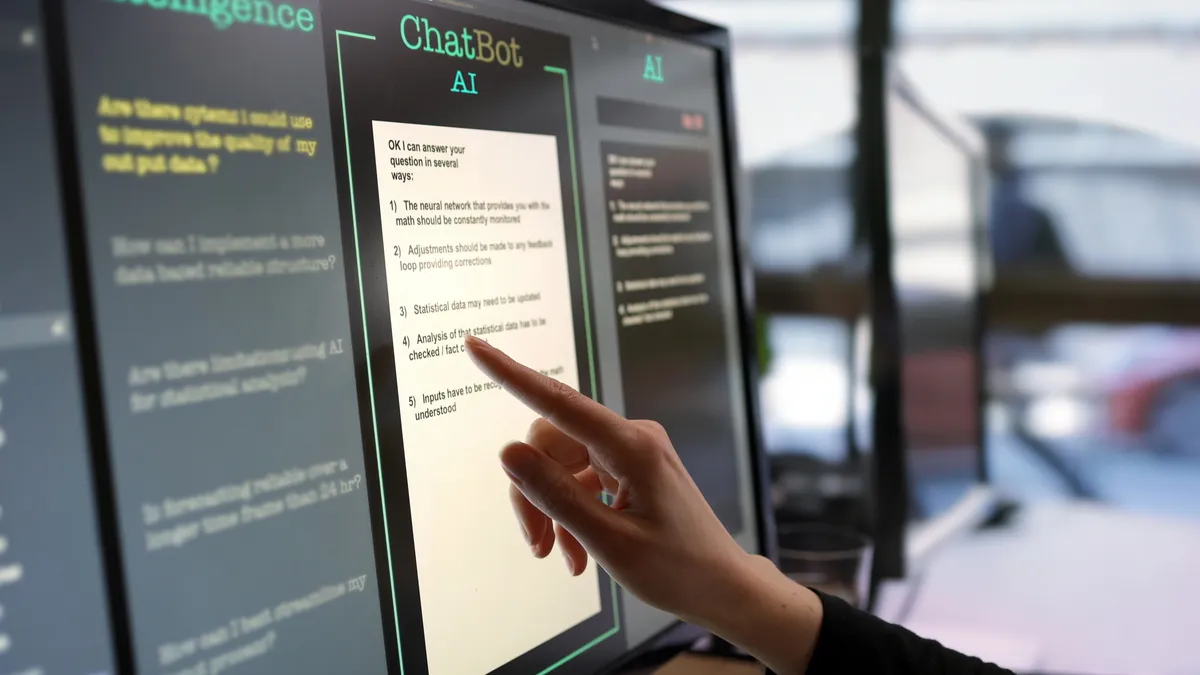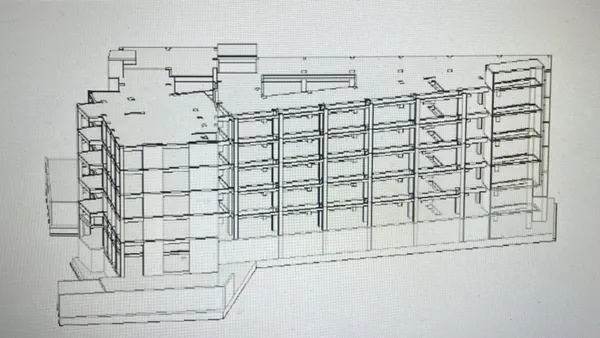Dive Brief:
- JLL has developed a large language model for the commercial real estate industry, according to a release.
- The generative AI model, JLL GPT, is powered by in-house data and external commercial real estate sources, and will be used to provide insights to the firm’s global workforce and clients.
- The product is the next step in JLL’s development and deployment of AI, which has included implementing the technology to improve building efficiencies, generate 3D leasing visualizations and calculate sustainability risks.
Dive Insight:
JLL says the generative AI solution follows the growing emergence of artificial intelligence in the facilities management space, as the industry increasingly adopts the technology to manage building controls and drive portfolio-level decision-making, amid significant labor concerns, high energy costs and rising tenant demands.
Developed by in-house technology division JLL Technologies, JLL GPT will be deployed to the company’s 103,000-plus person workforce and is set to provide consulting experts with a quicker turnaround on comprehensive workplace planning solutions for clients.
As facility operators and building owners continue to look to technology to create operational efficiencies, JLL plans to roll out made-to-order client solutions later this year.
“The most interesting thing that I’ve seen in my technology lifecycle is the emergence of GPT, large language models and generative, pre-trained transformative models,” Sharad Rastogi, CEO of JLL Technologies’ work dynamics technology group, told Facilities Dive. “We had the internet, we had mobile and now we have GPT. It’s going to be a very seminal transformation that is going to impact real estate quite dramatically.”
“Using generative technology, we can fundamentally improve the efficiency, the productivity, the insides and make buildings run a lot better,” Rastogi added.
Additionally, the company is increasingly leveraging the technology to drive investment leads and noted that one in five of JLL Capital Markets opportunities during the first quarter of 2023 was enabled by AI capabilities on its platform.
Rastogi added that brokers will be able to use the technology to automatically generate marketing material, analyze leases and query databases to make more efficient decisions.
JLL noted this technology is the result of a data-first philosophy, which has provided it with the clean, quality-assured and strictly governed commercial real estate data that is needed to extend into generative AI technology. Rastogi said that while the company has already put in considerable effort to these ends, there is still room for improvement.
“There's always more to do, right? We're always enhancing that [data], and I think that's going to be a journey. We're finding more and more data sources, and I think as the buildings get smarter, the number of endpoints with generative data are growing and are going to increase dramatically,” Rastogi said. “The better your machine learning models are, the better your forecasting is going to be and the better the insights you're going to get. This is a self-fulfilling prophecy and a self-reinforcing cycle”.
He also believes that the real estate industry as a whole is in the early stages of generative AI development and will see rapid growth in the next few years.












